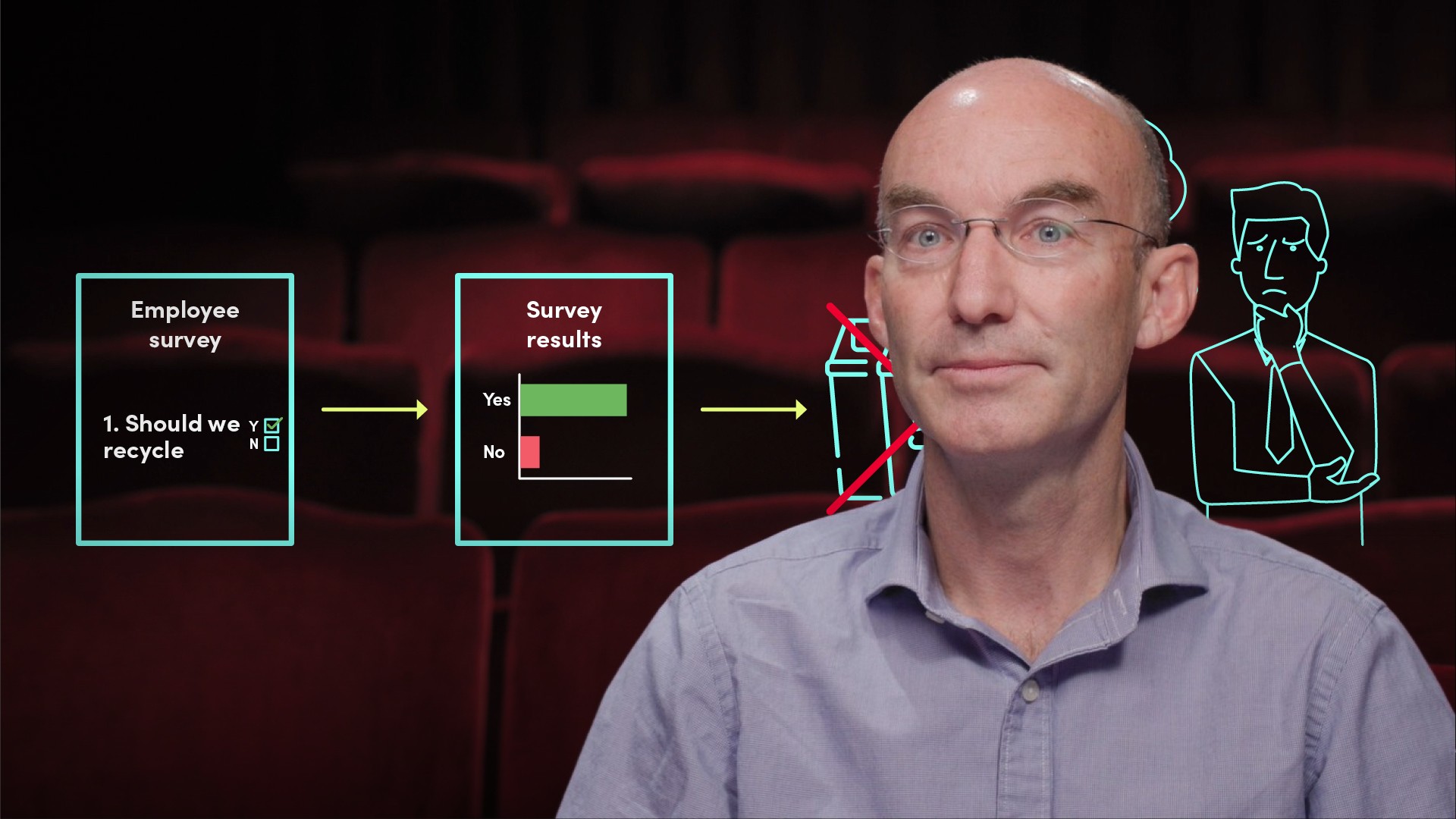
Culture Change Tools and Techniques I

Roger Noon
25 years: Behavoural science & culture
In the first 4 videos of this series, Roger presented the "Why?" and the "What?" of a culture change capability. In this video, he talks about how we can set the right expectations and how we can diagnose cultural strengths and weaknesses.
In the first 4 videos of this series, Roger presented the "Why?" and the "What?" of a culture change capability. In this video, he talks about how we can set the right expectations and how we can diagnose cultural strengths and weaknesses.
Subscribe to watch
Access this and all of the content on our platform by signing up for a 7-day free trial.

Culture Change Tools and Techniques I
10 mins 57 secs
Key learning objectives:
Understand the importance of culture charters and frameworks
Outline several diagnostics tools to use when assessing culture
Overview:
Influencing organisational culture can take the form of many techniques. It is important to set the right expectations and diagnose culture, this can be done through organisational culture charters and frameworks followed by several diagnostic tools. Organisational charters and frameworks can provide an aspirational cultural vision but often ignore the local sub-cultural context. Using their design for engagement can create a relevant output. Onto the diagnostics, surveys can measure employee sentiment, but their shortcomings must be mitigated. Culture deep dives investigate sub-cultures while behavioural analytic tools accurately monitor and predict cultural characteristics, provided they are used ethically as part of a wider culture strategy.
Subscribe to watch
Access this and all of the content on our platform by signing up for a 7-day free trial.
What is the importance of culture charters and frameworks?
Organisational charters and frameworks provide an aspirational culture vision and they can provide a perspective of ‘what good is’ and their design and adoption can be a useful means of understanding and communicating the link between culture and corporate purpose.
They do however often ignore local sub-cultural context. Using their design for engagement can create a relevant output. Encouraging dialogue makes a big impact on engagement and sub-culture diversity. Leaders should build a picture of what a strong culture looks like together to identify alignment issues and gain valuable knowledge.
What cultural diagnostics tools are there?
Surveys:
Surveys can provide useful insights into employee sentiment when their unintended consequences are understood and managed, and their shortcomings are mitigated by gathering other contextual information. Results should be quickly available, and immediate action should be taken to demonstrate leaders' seriousness. Pulse tests can supplement annual surveys and generate more immediate, localised feedback. Employees usually want a voice, and credible data interests them. Surveys provide a source of power for change, but if seen as window dressing, employees will lose interest quickly.
Cultural deep-dives:
Culture deep dives investigate sub-cultures and involve triangulation of qualitative and quantitative data to develop a rich picture of the prevailing localised culture and environment. They can draw insight from a range of sources, such as culture-related commentary from risk events, compliance reviews, and one-to-one interview data. Local management must commit to transparent communication and rapid follow-up to address concerns. Deep dive conclusions can only be trusted over a short period of time.
Behavioural analytic tools:
Behavioural analytic tools use big data techniques and behavioural science insights to identify indicators that correlate with behaviour and attitude, such as collaboration, transparency, psychological safety, innovation, engagement, and productivity. They have the potential to accurately measure and predict cultural characteristics and can be used for effective recruitment, development, and promotion. However, their use must be within clear ethical boundaries as they can be perceived as surveillance. These tools can be deployed to provide confidential feedback and developmental strategies to achieve better cultural awareness and trust in the organisation. Behavioural analytics approaches are expected to be at the centre of future culture change strategies.
Subscribe to watch
Access this and all of the content on our platform by signing up for a 7-day free trial.

Roger Noon
There are no available Videos from "Roger Noon"



























